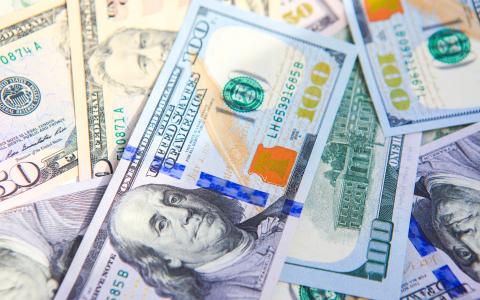
(Yahoo! Finance) - The idea should be politically disqualifying: Imposing tariffs on imports raises prices paid by American consumers and businesses. No politician should be able to tell voters he’ll raise their costs, and receive their blessing.
Yet Donald Trump does. He campaigned in the 2024 presidential race by promising aggressive new levies on imports from basically everywhere and won a convincing electoral college victory. Voters don’t seem to think Trump’s tariffs will harm them.
Trump is now moving fast to put his tariffs into place once he takes office in January. He says one of his first-day priorities will be slapping a 25% tariff on imports from Mexico and Canada, and a new 10% levy on goods from China. Those are America’s top three trading partners, and they ship about $1.3 trillion in goods to the United States each year. If those taxes go into effect, they’d raise the cost of those imports by about $236 billion.
Most economists say across-the-board tariffs impede efficiency, depress growth, and kill jobs. The Peterson Institute for International Economics estimates Trump’s full tariff plan would cost the typical household $2,600 per year in higher costs.
Voters say, meh.
Why the disconnect? Three reasons.
First, tariffs are confusing. A recent Morning Consult poll asked voters about their views on tariffs and found that many people don’t even know what they are, exactly. Only 25% correctly said a tariff is a fee a US company pays to the US government to import a product. Sixty percent incorrectly said the foreign company or the foreign government pays the fee, and 15% said they don’t know.
So most Americans mistakenly think somebody other than Americans pays the tariffs.
Yet 56% of Americans think US companies and consumers bear the majority of the costs imposed by tariffs. And they’re split on whether tariffs would be good or bad for the US economy. Thirty-eight percent think a 20% tariff would be good for the economy, while 41% think it would be bad, and 21% don’t know. The overall picture is that Americans have a poor understanding of tariffs and, not surprisingly, are conflicted about what they’re likely to accomplish.
Second, Americans don’t feel like Trump’s tariffs caused any harm during his first term, when he placed new taxes on steel and aluminum imports and about half of all imports from China. Those tariffs did cause limited harm by raising costs to some US producers. But that came at a relatively benign time for the economy, when inflation was low and the massive COVID-era supply chain disruptions hadn’t happened yet.
Trump also crafted those first-term tariffs in a way that raised the cost of intermediate goods, such as components, while keeping finished retail products off the list. Producers saw the price hikes but managed workarounds — such as getting components from Vietnam instead of China — that limited the impact felt by final purchasers, aka American shoppers.
There was one exception: washing machines. Trump placed a 20% tariff on imported washing machines, which promptly raised the price of laundry equipment by 12% and boosted the profits of manufacturers. That’s a template for what’s likely to happen in Trump’s second term if he directly tariffs finished consumer goods.
Third, Trump tends to threaten much larger tariffs than he actually imposes. When running for president in 2016, for instance, he said he might impose a 45% tariff on all Chinese imports. As president, however, he levied tariffs ranging from 7.5% to 25% on just half of Chinese imports, while exempting most finished consumer products.
Trump watchers now understand that he threatens tariffs as a negotiating tactic. “While Trump is the 'Tariff Man' and will be willing to see through these proposals, we also see him as prepared and willing to back down in exchange for key policy concessions,” financial firm Raymond James explained in a Nov. 25 analysis. “The announcement of the tariffs — almost two months before Trump is sworn into office — should be viewed as a play to bring Mexico, Canada, and China to the negotiating table fairly early on."
Trump wants China to crack down on illegal fentanyl shipments to the United States. He wants Mexico to do the same and also get better control of migrants passing through the country as they try to cross the US southwest border. It’s not clear what he wants from Canada, but he’ll assuredly come up with something.
Economists versed in the unhappy history of tariffs worry that Trump will overplay his hand and tank the US economy. To many Americans, however, tariffs are an arcane concept that Trump uses to heckle adversaries with little impact on everyday life. If we’re lucky, it’ll stay that way.
By Rick Newman - Senior Columnist



